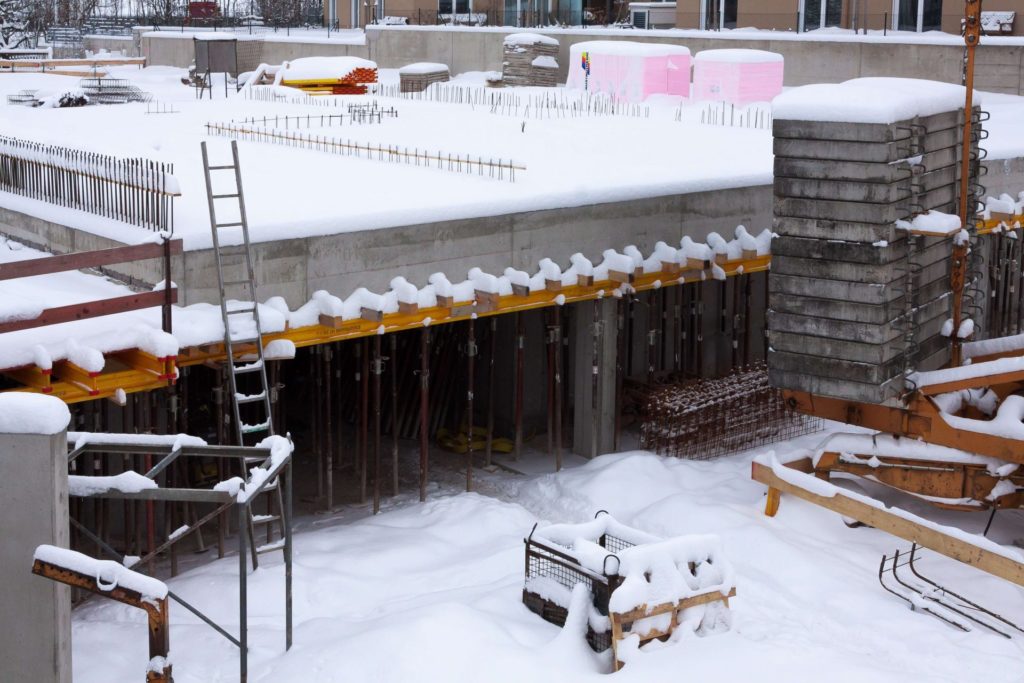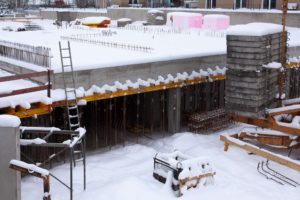It’s cold out there! Shoulder season has brought record-breaking cold temperatures across Canada and the United States. Not only are these temperature fluctuations uncomfortable (to say the least), but they’re also taking their toll on hard infrastructure like buildings, roads, bridges, and tunnels.
In fact, construction crews in both countries are having to delay construction schedules, losing not just valuable time, but money. In the U.S. alone, an estimated $31 million per day is lost for every day that construction schedules are delayed.
How Does Cold Weather Affect Construction?
If you work in the construction industry, then you probably already know that the weather (i.e. temperature) plays a crucial role in the progress and efficiency of a project. In fact, temperature is one of the most important factors in concrete strength development.
In cold-weather conditions, concrete takes a longer time to set and gain strength. For example, a 20°F (10°C) drop in temperature doubles setting time of concrete. As such, contractors have to slow things down and delay operations like formwork removal or post-tensioning.
For every day of delay, contractors lose about $10,000.
Rushing the construction schedule could compromise concrete strength and quality, resulting in permanent damage to the concrete in addition to the obvious safety risks. Unfortunately, this means slower workflows, increased expenses, and overall reduced efficiency as contractors are forced to push their deadlines and stretch their budgets.
Predicting Concrete Strength By the Maturity Method
In order to verify that structural elements have developed enough strength to move on to the next stage of a construction project, contractors have to closely monitor the temperature of concrete. And until recently, continuous real-time monitoring of concrete temperature was not possible with time-consuming and destructive break tests.
A much more accurate and non-destructive alternative is the maturity meter method, which measures concrete strength by factoring in time and temperature measurements to calculate actual strength gain values.
SmartRock®

Giatec’s SmartRock® sensors have replaced traditional break testing with the concrete maturity testing, which is safer, faster, cheaper, and more accurate than traditional approaches.
Using these rugged wireless sensors, contractors receive values for concrete temperature and strength in real time. This allows them to make important decisions faster and with more accurate data.
Ultimately, they are able to allocate resources better during drastic temperature fluctuations like the ones we are experiencing today. It’s why the SmartRock® has been used in over 2,600 projects worldwide!




